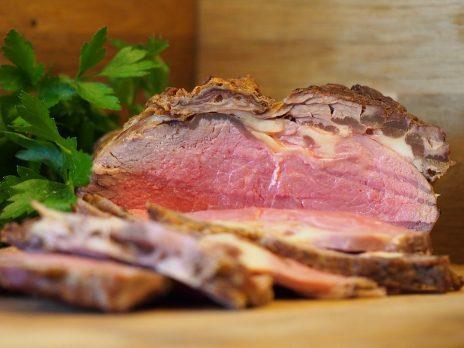According to a new poll conducted in time for St David’s Day, tomorrow March 1st, more than half of UK consumers are concerned that food and meat which is farmed to lower standards than home-produced fare could be imported after Brexit.

These concerns were among the top findings of the opinion poll which was conducted by pollsters BMG Research on behalf of red meat levy board, Hybu Cig Cymru – Meat Promotion Wales (HCC).
The poll reported that 53% of respondents, which consisted of a representative sample on 1,508 UK adults, said that they were somewhat or very concerned about the impact of Brexit on the quality of the food they eat, whereas around 8% were not concerned at all.

Research also revealed that consumers appreciate the high standards to which food is produced in Britain, with around 53% saying that sheep and beef farming in Wales had a higher environmental standard than the global norm, with only 7% thinking it was lower.
HCC’s chief executive Gwyn Howells commented: “This poll gives us a great insight into consumer perceptions on sheep and beef farming in Wales in the domestic UK market which could be so important after Brexit.
“It goes to show that the British public really is concerned about the food they eat and that quality is high on the agenda.”
Respondents were also asked their opinions on what they think cows and sheep reared in Wales mostly eat, and the response revealed that 79% correctly opted for grass rather than processed feeds.
HCC say that this supports the fact that PGI Welsh Lamb and PGI Welsh Beef is produced extensively and predominantly on natural pasture and reared to a high standard in terms of animal welfare by farmers who use traditional farming methods.
Howells added: “In the lead-up to Brexit, HCC is undertaking a wide range of promotional activities in the domestic market. This poll shows what a strong brand we have in Welsh Lamb and Welsh Beef, and consumers will be looking to retailers to ensure they continue to provide meat produced to the highest standards of welfare and sustainability.
“The landscape and climatic conditions of Wales means it is one of the world’s most sustainable places to produce red meat. 80% of Wales’ landmass is primarily suited for livestock farming, and producers work tirelessly to maintain the landscape. They continue to adapt and introduce new practices to increase their environmental credentials,” he concluded.
This story was originally published on a previous version of the Meat Management website and so there may be some missing images and formatting issues.















